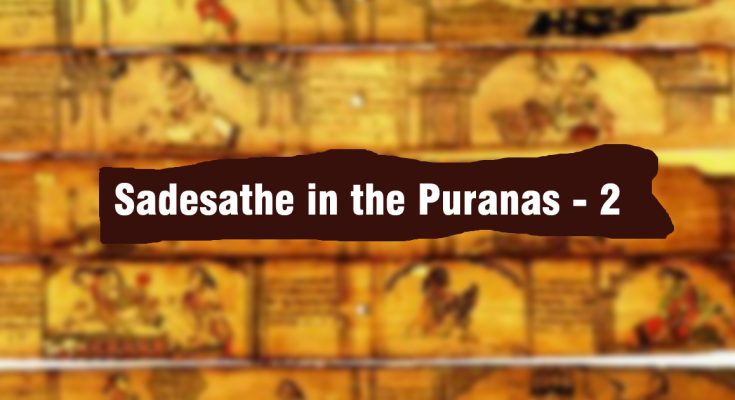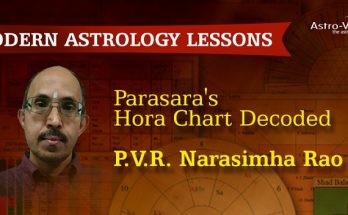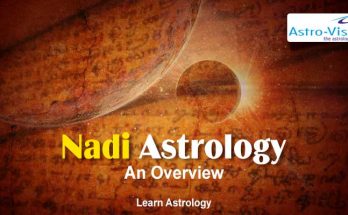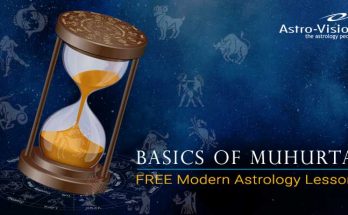Separation from Wife
Nala feels if Damayanti continues to stay with him, she will only suffer with him and so, if he can go away when she is fast asleep, may be she would go back to her parents. Under the influence of Kali Purusha, Nala goes away leaving Damayanti in the forest.
On waking, Damayanti realizes what Nala has done. She comes across a group of ascetics to whom she explains her plight. They bless her saying she will be reunited with Nala and be freed of all misery. Damayanti then joins a caravan and reaches the city of Suvahu of the Chedis after much difficulty. She is given shelter by the queen of the kingdom.
Nala Becomes Ugly
King Nala, in the meantime, has entered a thick forest where a fire is raging. Nala hears the serpent-king Karkotaka saying, “I deceived the great sage Narada and got cursed. There is no snake in this world equal to me. Please take me in your hands”. As Nala approaches Karkotaka to take him in his hand, he shrinks in size to that of a thumb. And bites Nala’s hand which makes his appearance undergo a change making him grotesque.
Karkotaka blesses Nala saying, “You will not feel any pain from any kind of poison. I changed your form so that you could go about unnoticed. You may now go to Ayodhya and introduce yourself as Vahuka to King Rituparna, who will teach you the nuances of the game of dice. You will regain your kingdom”. Further Karkotaka gives Nala a pair of clothes, on wearing which he can regain his original appearance.
Nala calling himself Vahuka meets King Rituparna and tells him that he is adept in cooking and equestrian science. Nala is taken in as the superintendent of the stables.
In the meanwhile, an emissary from King Bhima comes to the Chedi kingdom who recognises Damayanti as the daughter of his king. She is sent back to her parental house in Vidharba where her father, the king sends his emissaries in search of Nala who report that a person resembling him is now employed in the service of King Rituparna in Ayodhya.
Exchange of Knowledge
King Bhima announces Damayanti’s Swayamvara to bring back Nala to his daughter. King Rituparna decides to attend the Swayamavara and sets out with Nala as his charioteer. As they proceed towards Vidarbha, King Rituparna teaches Nala the art of playing dice while Nala teaches equestrian science to the former. On the way, they come across a Vibhitaki tree where Kali Purusha leaves Nala’s body. Kali Purusha blesses King Nala saying, “If anyone recites your history, they need have no apprehensions from me”. In other words, reciting or listening to Nala’s story is said to shield one from Sani Dosha or the evil caused by Saturn. Kali Purusha then enters the Vibhitaki tree. From that one day, the Vihitaki has been treated as an accursed one.
Three Cycles
Saturn’s 7-5 year transit is classified under three heads in Tamilnadu.
The first round is called Mangu Sani. This occurs when the 7 1/2 Saturn cycle takes place for the first time in life. It spoils health and education.
The second round is called Pongu Sani. This is considered a fertile or auspicious period contrary to prevailing textbooks views. Auspicious functions like marriage would materialize. One view which probably could be inferred is that the second round is less harmful than the first. In most cases, the first phase of Saturn happens in childhood whereas the second round comes in adulthood so the native would be able to overcome problems better.
The third round is called Kungu Sani. This may, in several instances, prove to be the final sadesathe in one’s life. Mental worries, agony, and mourning are some of the results. In many instances, the person may even die. Out of the 7 1/2 years, the transit of Saturn over natal Moon or Janma Sani is deemed to be the worst. It can also be life-threatening.
When Saturn transits the 8th house, sorrows, fear of accidents, attack through weapons and other dangers are possible. There can be problems with the government. One suffers humiliation. There is wasteful expenditure and one may get caught in litigation. Transfer to remote places and one is forced to do menial jobs are some of the results.
The saying Buddi Karmanu Sarini (one’s mind functions in accordance with past Karma) is applicable to Saturn’s transit over inauspicious houses. When the past Karma of a person is bad, his intellect gets corrupted, forcing him to do evil deeds. Such deeds lead to losses, dishonour, and other undesirable consequences. All such events are foreshadowed by the transit of Saturn over inauspicious houses.
Nala Regains Kingdom
Returning to the story of Nala and Damayanti when King Rituparna reaches the Vidharba kingdom, Damayanti senses that Nala has appeared in disguise as Vahuka and confronts him with a barrage of questions: “Who, except King Nala could desert his wife in the forest? What wrong did I commit to deserve this? Why should King Nala desert me, especially when I had married him in a Swayamvara in preference to the celestials? Why did King Nala break the vow to protect me which he took at the time of marriage?” To all these questions, Nala gives a one-line answer “All these wrongs are not attributable to me. They are due to Kali Purusha. I have now come here only for your sake. Kali Purusha was with me when all these evil things happened. But now he has left me. But I want to ask you ‘Can any woman, forsaking her loving and devoted husband, choose another man as her husband?”‘
Damayanti then tells Nala, the Swayamavara was only a ruse to bring him from Ayodhya to Vidharba. At this juncture, Nala remembers the benediction of Karkotaka and puts on the clothes given to him regaining his old handsome form.
King Nala returns to his kingdom with a big retinue and challenges Pushkara to a game of dice. But at the same time gives an alternative too: If Pushkara is unwilling to play dice, he can choose to face him in a battle. Pushkara is worsted in the game this time and King Nala regains the kingdom. King Nala forgives Pushkara for all that had happened. Telling him, “All the suffering I underwent is due to Kali Purusha. You are not the real cause” he gives him part of his kingdom.
Concluding the story the sage says “Nala suffered the woes all alone but finally regained his prosperity. But I see you, the Pandavas in the forest, along with Lord Krishna. You are also meeting scholars who are well versed in the Vedas. So, there is only little cause for sorrow. The influence of Kali or Sani is destroyed when one hears the story of Nala Damayanti, Rituparna and the serpent King Karkotaka”.
Hidden Morals
Some of the morals hidden in this story are:-.
1) For Nala’s reversal of fortune, the reason cited is the entry of Kali Purusha owing to his failure to wash his feet after attending the calls of nature. Similarly, Damayanti had to pay a heavy price for failing to honour the gods who came to the Swayamvara. Wrong karma and divine wrath are harmful. This is why both Nala and Damayanti had to suffer.
2) According to the Srimad Bhagavatam (1-17-38), Kali Purusha is supposed to be present in five places, namely, gambling houses, bars or pubs, places where harlotry is carried on, abattoirs or places of murder and gold stock rooms. That is, untruth, infatuation, lust, passion, and enmity are the abstract qualities over which Kali Purusha holds sway. So those who harbour the five above mentioned qualities become liable for punishment. King Nala played the game of dice with Pushkara. This is how he fell a victim to Kali Purusha.
3) In works such as Garuda Purana, there are scientific interpretations given to human features. For instance, facial hair in women is bad, while the absence of facial hair in men indicates a crook Damayanti is said to have had a mole on her face which explains her prosperity and royal status.
4) The message of Taittiriya Upanishad is:
Swadhayaya pravachanabhyam na paramathithavyam
(Seek and also impart knowledge – never fail to do both).
Here the exchange of knowledge between Nala and Rtuparna is an illustration of this dictum. Knowledge of dice is gained by Nala and Rituparna learns equestrian science from the former. Knowledge grows only when shared.
5) When the time becomes auspicious, one comes across the right people. When Nala’s favourable period began he could defeat Pushkara and regain his kingdom. But all this was truly achieved on account of his gaining knowledge of dice from Rituparna. So Nala meeting King Rituparna could be termed a pre-ordained event. Also, this underlines the truth of the dictum ‘Nothing in this Universe happens by coincidence’.
6) Karkotaka biting Nala is due to the effect of Kali Purusha. But Purva Punya (merits of earlier births) of King Nala ensured that after being bitten he is blessed by Karkotaka who offers him guidance for reuniting with Damayanti. So it can be said that when man’s Karma is favorable, even a snake will turn out to be an ally.
Vyasa’s Benediction
The final benediction offered by Vedavyasa to the reader is:
Karkotakasya nagasya damayantya nalasya cha
Rtuparnasya rajarse kirttanam
Kali nasanam
(Think of the serpent King Karkotaka, of Damayanti and Nala and the Rajarishi (royal sage) Rituparna and be fee from the shackles of Kali.)
The message conveyed is that the outcome of human effort is uncertain; one should not be either overjoyed with success or lose hope in adversity. The assurance given by Maharishi Vyasa is this:
” He who recites the story of Nala repeatedly or will listen to it will never be touched by adversity”. All his efforts will be crowned with success. He would be blessed with success, fame, progeny (sons and grandsons), pre-eminence among men, health, and joy. Such a person would be immune to Sani Dosha (or Kali dosha) and therefore, will never face adversity. As the words of sages are considered axiomatic and have an intrinsic propensity to come true, I am sure, the avid reader who happens to read the story of Nala and Damayanti in these pages would be in a position to overcome adversity in his personal life and also be in a position to guide others who may be under the spell of adverse planetary positions.
Courtesy: MODERN ASTROLOGY ( Dr. E. S. Neelakantan)
Continued from: Sadesathe in the Puranas







